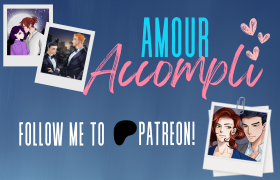It’s possible that Sonnets are the perfect poetic form.
Tidy, compact, restrained… and yet able to kneecap you intellectually and emotionally.
Of the various types of sonnets (Petrarchan, Shakespearian, Spenserian, etc)… I am partial to Shakespearian.
A Shakespearian sonnet should feature all of the following:
• Fourteen lines divided into three four-line stanzas plus one rhyming couplet.
• Every line should be in iambic pentameter.
That means that each line should contain ten syllables, and syllables should NATURALLY fall into an unstressed/stressed/unstressed/stressed pattern. This is the part people get twisted. They think it’s arbitrary, that the poet is DECIDING what syllables are stressed. Untrue. A poet has to find words in the wild that fit the pattern. Every multiple-syllable word already has a correct pronunciation. The poet cannot really change that pronunciation to make the word fit a line.
Dictionary, for example, is naturally trochaic (stressed/unstressed/stressed/unstressed). DICtionAry (stressed is caps). That’s just how we say it. It’s never the dicTIONaRY. So if I want to use it in a sonnet, I’ll have to be careful where I place it. It can’t be the first word in a line, because it starts with a stressed syllable. But I could put an unstressed syllable in front of it and make it work, like this:
The DICtionAry SITS uPON the SHELF. (Caps syllables are stressed, 10 syllables total)
See? I didn’t change the way any of the words are supposed to sound. Dictionary and upon are pronounced in the poem the way they are pronounced in speech. That’s how rhythm or “meter” in a poem has to work.
There are a few cheats, like contracting syllables (e’er for ever or ‘pon for upon) or adding syllables in really old-school poems using English’s only real not-just-for-stolen-French-words accent mark, the grave accent, to turn the one syllable word “breathed” into the two syllable word “breathèd” which has to be pronounced “breathe-ed.” But let’s ignore the cheats and focus on the big issue— you can’t just change the pronunciation of words to make them fit in poems. Songwriters do it, but poets shouldn’t.
• An ababcdcdefefgg rhyme scheme.
Meaning that lines 1 & 3 and lines 2 & 4 rhyme each other. So do lines 5 & 7 and line 6 & 8. The last two lines rhyme each other.
• The first two stanzas should bring up an issue of some kind, and make observations about it. They should acquaint, describe, introduce.
• The first line of the third stanza should contain a shift— from observing to problem solving is the classic shift. This line is called the “volta” or turn.
• The remainder of the third stanza should develop the tone/idea introduced in the shift, like holding a note in a song.
And then?
• The final rhyming couplet, or “envoi” should give us a tidy little take-away.
A sick burn, a pithy observation, a witty retort… something clever to remember the poem by.
All that in fourteen lines...
More room to work than in a Haiku, less than in a villanelle…
I shouldn’t play favorites. I can’t really pick a perfect poetic form. I can’t even argue that the best poems have forms. Most of my favorite poems are open form, because so many of them are modern, and most modern poets choose not to work within set patterns.
Most modern poets don’t even bother with rhyme, and rhyme is actually the very first thing I encourage people to abandon when they are trying out poetry writing. Rhyme can be a hell of an albatross for a new poet to wear around their neck.
So why am I so stuck on sonnets, then?
Well, it’s like this. There’s a quote about the famous dance partners/movie stars Fred Astaire and Ginger Rogers.
“Ginger Rogers could do everything Fred Astaire could do, but she did it backwards and in high heels.”
William Shakespeare could do everything that Charles Bukowski could do, but he could do it in iambic pentameter and with an alternating rhyme scheme. Charles Bukowski didn’t think Shakespeare retained much relevance in the 20th century. I don’t know how Shakespeare would have felt about Bukowski.
Myself? I like them both, and I think that they have a fair amount in common.
For one, they both liked to call other writers out on their bullshit. They both liked things that were authentic and a little gritty.
Don’t believe me? Let’s look at my very favorite Shakespeare sonnet.
It’s not about love. Despite appearances to the contrary, it’s not even about the speaker’s girlfriend. It’s about schlock. Dross. Schmaltz. Bad writing, in other words.
The official title of this sonnet is “Sonnet 130.” It is better known, however, by its first line: “My mistress’ eyes are nothing like the sun.”
My mistress' eyes are nothing like the sun;
Coral is far more red than her lips' red;
If snow be white, why then her breasts are dun;
If hairs be wires, black wires grow on her head.
Ok. So. When he looks at his gf’s eyes, he notes that they do not resemble the sun.
When he looks at her lips, he sees that they’re, you know, pinkish. Not… coral red.
Her skin seems to be more skin-colored than anything. Compared to snow, it’s not very white. Compared to snow, it’s like a dingy tan color, in fact. Dun-colored.
Her hair is more like… wires than, say, gossamer or sunbeams, or anything of that nature.
I have seen roses damasked, red and white,
But no such roses see I in her cheeks;
And in some perfumes is there more delight
Than in the breath that from my mistress reeks.
He’s seen those cool Damask roses that smell good. He’s seen red ones and white ones. He’s seen red AND white ones, probably.
He’s just never looked at his girl’s cheek and thought it looked anything like a rose.
He’s smelled some nice perfumes.
Some of those perfumes smelled more beautiful than his gf’s breath. (Which is, presumably, not a mixture of essential oils and whale barf like fine perfume is.)
I love to hear her speak, yet well I know
That music hath a far more pleasing sound;
I grant I never saw a goddess go;
My mistress, when she walks, treads on the ground.
Okay, we’ve arrived at line 9 and it contains TWO shifts, really— the first is that he reassures us that he LOVES the sound of his mistress’s voice. YET (shift word!) he has to admit that her voice is not a literal melody. And that music is a prettier sound than a person talking, generally.
He’s also ready to admit that he has never seen the locomotion of an actual goddess…
But he has seen his gf walk, and it involves feet touching the ground.
And yet, by heaven, I think my love as rare
As any she belied with false compare.
And here we go… the envoi…
AND YET (another shift!), by heaven (a vow!), he thinks his lover is as rare and beautiful as any she (any SHE, any woman) who has been described using unrealistic metaphors that no one could ever hope to live up to.
So this poem is not Shakespeare saying that women are ugly and certainly not that his gf is ugly. He is saying that the beauty of women cannot be captured in the kinds of tired old comparisons (cheeks like roses, voice like music, breath like perfume, breasts like snow) that other poets have been using to describe them.
In other words, this is kind of a takedown of the unrealistic beauty standards in shitty poems. Done in 14 lines of iambic pentameter with an alternating rhyme scheme.
Not bad. Not irrelevant, either, I'd say. This is still a conversation we're having in 2024.
Maybe you could write a sonnet, too? Maybe just a bad one? Perhaps with a little help and encouragement? Let’s get used to the idea for a little while, and then we will revisit it in a future HQ post. I never said that I would do ALL the writing.
For now, see if you can leave me a thought in iambic pentameter in the comments.
This POST was KIND of HARD for ME to GRASP.
A SONnet IS more TROUBle THAN it’s WORTH.
AMOUR, you REALly HAVE to GET a LIFE.
I STILL do NOT think RHYME schemes MAKE much SENSE.













Comments (12)
See all